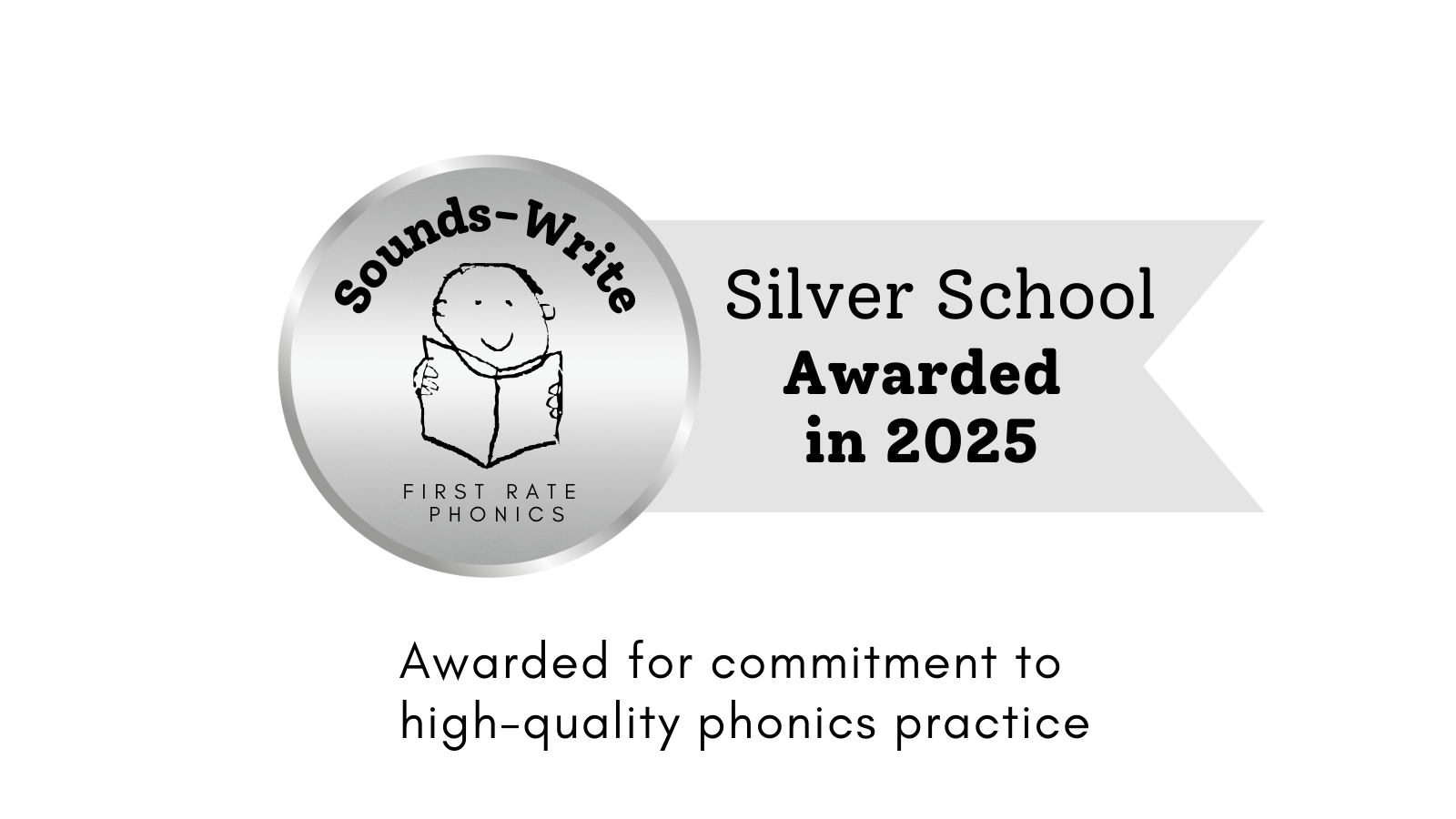Intent
At Spring Gardens, we are committed to ensuring all pupils become confident communicators who are passionate and skilful readers and writers. We understand the importance of children learning to read as quickly as possible, recognising that reading underpins all areas of the curriculum as well as future prospects and emotional wellbeing. During their time at Spring Gardens, pupils will develop a lifelong love of reading and acquire the technical skills needed for reading success.
The key to unlocking reading success is through systematic, synthetic phonics. We believe that a strong and consistent approach to the teaching of phonics is vital for children to become capable readers and writers. Therefore, our teaching and support staff in Reception and Key Stage 1 have received high-quality training in our school phonics programme – ‘Sounds-Write‘. This scheme is used around the world and it is validated by the Department for Education. We truly believe this phonics programme is right for our school and our pupils. We have now trained the majority of our staff in the delivery of Sounds-Write, adopting this as our whole school approach for teaching reading and spelling.
All About Sounds-Write
Courses for Parents / Carers
Part 1: Helping Your Child to Read and Write
Part 2: Helping Your Child to Read and Write
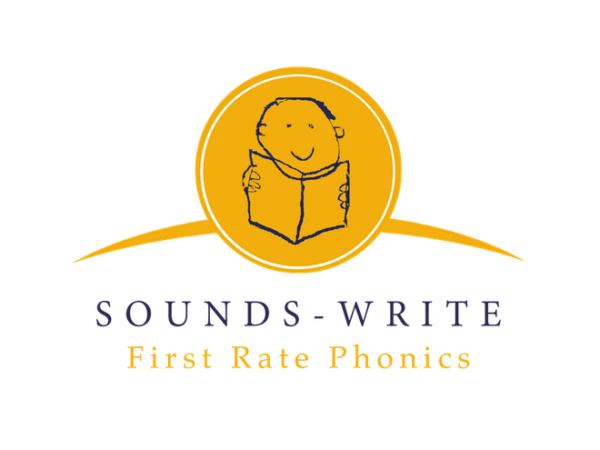
Our school is a literacy-rich environment. Whilst attending Spring Gardens, pupils will encounter a wide range of high-quality texts and classic authors, as well as participate in exciting and inspiring literary experiences. Every child, regardless of age, background or ability, becomes immersed in our reading culture at Spring Gardens.
Implementation
In Nursery, our youngest learners begin to form the foundations for reading through general sound discrimination activities (e.g. environmental sounds, instrumental sounds and body percussion), as well as exploring rhythm and rhyme and developing their oral blending and segmenting skills. We introduce formal phonics teaching, using the Sounds-Write programme, at the beginning of Reception. The Initial Code is taught in Reception and then children move onto the Extended Code in Year 1 and Year 2. To ensure each class is progressing at the expected pace, our Literacy Lead has devised a long term plan stating content to be covered each half term.
Phonics is taught daily by the class teacher, with teaching assistants supporting children in the session. The duration of each phonics session is approximately 45 minutes (our Reception classes build up to 45 minute sessions throughout the year). Each session teaches new code knowledge whilst continually revising prior learning, ensuring knowledge is securely transferred to children’s long-term memory.
Children are given a decodable book to practise their reading skills throughout their time in Reception, Year 1 and most of Year 2. These books are matched to the sounds taught in their daily phonics sessions. We have a wide range of Dandelion and Sounds-Write decodable books which are linked to our phonics programme. In school, children read their decodable book at least three times per week to develop fluency. Children and parents / carers are asked to read and re-read these books at home daily. Books are changed each week. Occasionally, teachers may feel children would benefit from keeping their book for a further week to achieve reading fluency.
In Key Stage 2, children are provided with a book matched to their reading ability. Children are encouraged to read regularly at home and they are given reading homework to complete each week.
During our group reading sessions, teachers scaffold high-quality discussions based on four key strategies – predicting, clarifying, questioning and summarising. In Key Stage 1, our reading characters (Percy Predict, Claire Clarify, Quincy Question and Sammy Summarise) help our younger children to grasp these concepts.
All children take home two books per week – one book provided by the class teacher to develop their reading skills and one book of their choice from the school library to read for pleasure. Our Nursery children take home a school library book each week to enjoy with their families.
Parent / Carer Information
Book Chat
Formative assessment is ongoing during reading sessions. These informal assessments are used to inform teachers’ planning and/or implement interventions to ensure all children’s needs are met. In Year 2-Year 6, children complete a termly reading assessment. Teachers use these assessments to further support their judgements and identify gaps in learning. Following the identification of gaps in knowledge, teachers adapt their quality first teaching and/or implement interventions to meet the needs of their pupils. At Spring Gardens, we use Insight as our assessment tool. Teachers use this tool to highlight our reading progression statements, thus supporting them to make accurate judgements of children’s reading skills.
During our phonics sessions, early reading and writing skills are monitored rigorously and instant feedback is given to children. Additionally, teachers regularly update a class tracking document which is monitored by our Literacy Lead. This document identifies children receiving intervention and measures the impact of the intervention on pupil progress. Our phonics interventions are rapid and well-informed, reacting immediately to needs identified in the daily phonics session and then targeting these needs through pre / post teach interventions. Where necessary, teachers use diagnostic phonemic skills tests (provided by Sounds-Write) to assess children’s proficiency with blending, segmenting and phoneme manipulation.
Promoting a Love of Reading
Reading is at the heart of every classroom. All teachers read to their class every day. Our story time sessions contain core books from our school reading spine, ensuring children encounter a range of ‘must reads’ throughout their young lives. Teachers will supplement these collections with their own favourite children’s books and texts linked to pupils’ interests or class topics.
Diversity & Inclusion
Using the money raised at last year’s Book Fair, we were able to purchase some wonderful books for each year group to promote the diverse world around us. These books offer a powerful opportunity to develop empathy and understanding; building a compassionate community of young people and reflecting our school RESPECT values. At Spring Gardens, we want all children to see themselves represented in books and we are thrilled to add these books to our school collection…
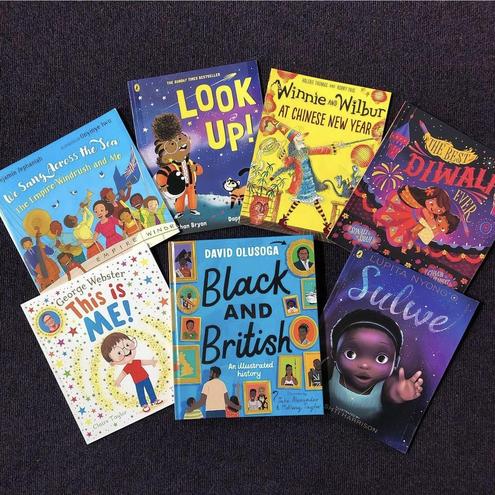
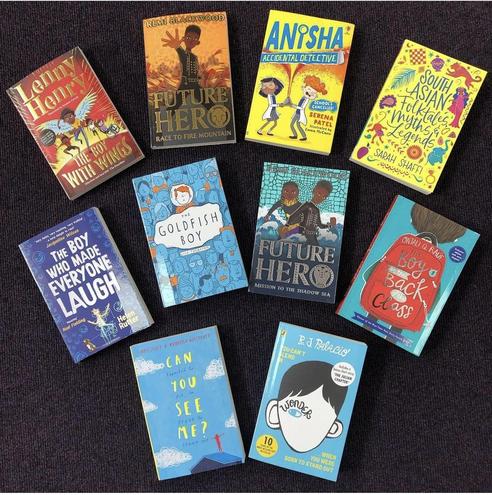
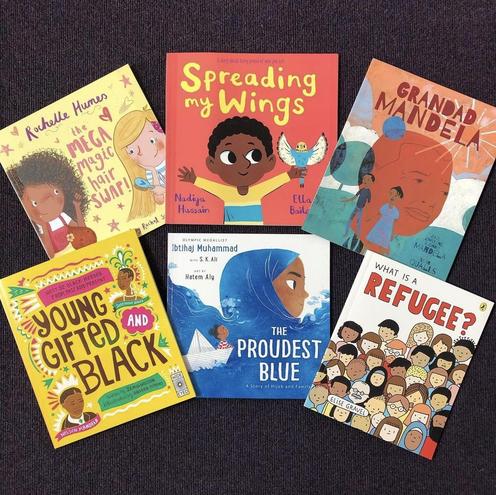
At Spring Gardens, we have two school libraries which are well-stocked with engaging and enjoyable texts, reflecting a wide range of cultures and attitudes. All children visit their school library each week, browsing books and making recommendations to their peers. The children are able to choose a book to take home to share with their family. Furthermore, every classroom has a reading area / class library for children to peruse at their leisure. All children are given regular opportunities to read for pleasure, fostering a lifelong love of reading.
Our reading curriculum is also enriched with Project Loans from the Schools Library Service each term. Teachers are able to request books / story sacks / artefacts to support and enhance learning across a range of subjects. These books provide an opportunity for children to apply their reading skills across the curriculum.
Our Year 5 and Year 6 reading buddies promote and champion a love of reading, visiting Key Stage 1 and Lower Key Stage 2 each week to listen to children read. During their buddy sessions, our older pupils also read to the younger children; inspiring our young readers by being a reading role model. In addition to our Year 5 and Year 6 buddies, we have formed a close relationship with the organisation ‘Pets as Therapy’, welcoming our furry friend Rosie into school to listen to children read through their initiative ‘Read 2 Dogs’.
As a school, we provide wider opportunities to encourage reading, such as: inspirational author workshops, scholastic book fairs, visits to our local library, outdoor reading provision and local reading challenges. We also enjoy celebrating special literacy themed events across the year (e.g. World Book Day, National Storytelling Week and National Poetry Day).
Impact
Our pupils develop a love of reading and make good academic progress, giving them the tools they need to become independent, lifelong learners. Upon leaving Spring Gardens, all pupils (regardless of individual needs, background or starting points) can confidently decode unknown words, read fluently and demonstrate secure comprehension skills.
At the end of Year 1, pupils across the country complete the Phonics Screening Check to measure their ability to decode words using their phonic knowledge. The majority of our pupils are successful in reaching the expected standard, establishing firm foundations to build on in Year 2 and beyond. As our pupils move through school, they continue to develop their reading skills and expand their reading repertoire. At the end of Year 6, the majority of our pupils achieve age related expectations in reading, leaving primary school equipped with the skills needed to succeed in the next stage of their education.
Our reading curriculum supports our pupils to become confident communicators who are passionate and skilful readers and writers. Our pupils are ready for the world and all it has to offer; today a reader, tomorrow a leader.
